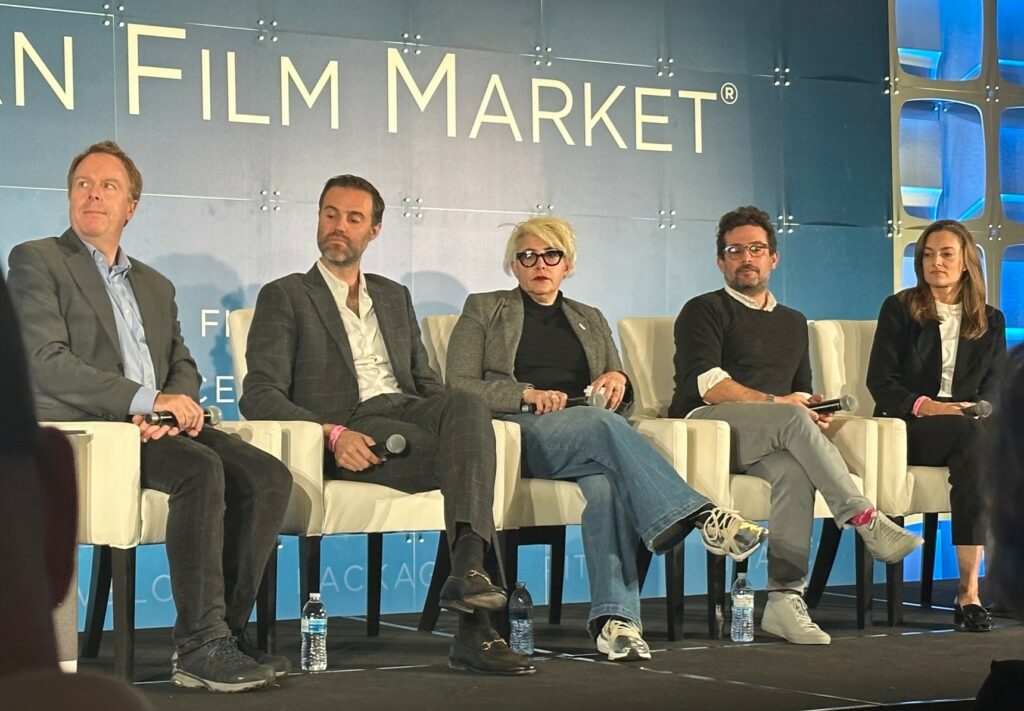
“Everybody laughs the same in every language because laughter is a universal connection.” So said Yakov Smirnoff, the Russian-born standup comic who immigrated from the Soviet Union in the mid-70s and went on to become a cold-war-era hit in the US.
But such belief in the power of comedy didn’t begin with Yakov. Years earlier, comedian Red Skelton performed a series of pantomime skits at the United Nations. The show, which later aired on CBS, was titled Laughter, the Universal Language.
Over the years, the sentiment has been echoed by folks as diverse as comic book artist George Pérez (“Laughter [is] the … mother of unity”) and possibly even the writers of the late 60s rock song “Wooden Ships” (“If you smile at me I will understand / ‘Cause that is something everybody everywhere / Does in the same language”).
But is it true today?
What do film audiences want in the roaring 2020s?
According to the members of the AFM panel The Content Audiences Want, it isn’t comedy.
“American comedies don’t do well worldwide,” which is why studios today prefer action films. The reason, according to panelist Jeffrey Greenstein, is because “explosions are a universal language.”
That was just one of the thought-provoking assessments shared at a Wednesday panel moderated by Scott Roxborough, the European Bureau Chief for The Hollywood Reporter.

The other panelists included Lourdes Diaz, CCO of AGC Studios; Joe Lewis, CEO of Amplify Pictures; Maren Olson EVP at 30WEST; and the aforementioned Jeffrey Greenstein, President of Millennium Media.
Opening with an assessment of the state of entertainment in the wake of recent events (Covid, strikes, and global tensions), the panel offered an at times sobering look at the future of filmmaking and marketing.
Early in the conversation, Scott Roxborough asked, “What does work theatrically these days?” Then added, “All I see that consistently works is horror.”
In response, Maren Olson (whose company 30WEST helped negotiate the indie hit Triangle of Sadness) admitted that determining what audiences want today is “not an exact science.” And the panel agreed, acknowledging that determining which films to produce often comes down to a gut decision. Nevertheless, according to Jeff Greenstein, “The one thing that hasn’t changed is the importance of storytelling.” He then went on to add, “The three most important things in a movie are story, story, story.”
The takeaway for screenwriters is that despite stiff competition and an increasingly selective marketplace, coming up with a story that moves your audience is likely more important than writing for a specific genre.
Beyond that takeaway, the discussion ended on a decidedly upbeat note, with Lourdes Diaz predicting that “a year from now, the industry will get back to work. There will be new ideas, new directors, new scripts that writers were working on while they were on strike, and actors who will be hungry to get on to [new projects]. We will be packaging things and making movies […], and I think a year from now we’re sitting here again and celebrating the comeback of the box office.”
That assessment elicited enthusiastic applause from the audience of producers, creatives, and financial planners as it brought the 90-minute discussion to a close.
In all, the panel left me eager to hear what other members of the global film industry will have to offer as AFM enters its final three days. So many panels, so little time.
I’ll try posting more updates soon. Until then, scop on!
Photos by Christopher Connolly

Leave a Reply